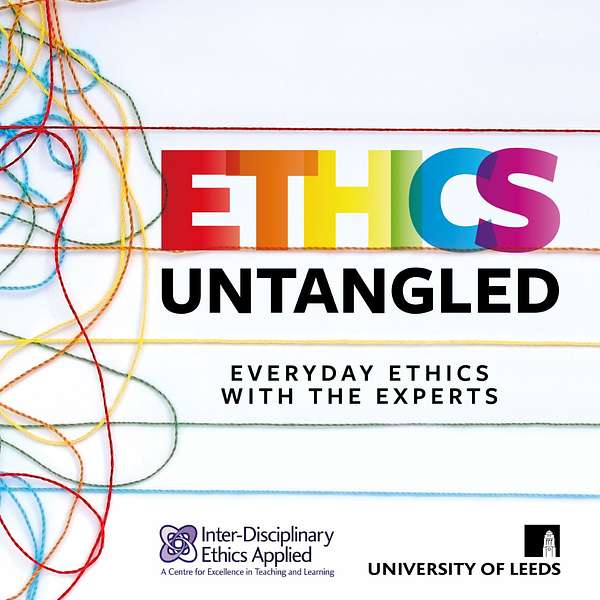
Ethics Untangled
Ethics Untangled is a series of conversations about the ethical issues that affect all of us, with academics who have spent some time thinking about them. It is brought to you by the IDEA Centre, a specialist unit for teaching, research, training and consultancy in Applied Ethics at the University of Leeds.
Find out more about IDEA, including our Masters programmes in Healthcare Ethics and Applied and Professional Ethics, our PhDs and our consultancy services, here:
ahc.leeds.ac.uk/ethics
Ethics Untangled is edited by Mark Smith at Leeds Media Services.
Music is by Kate Wood.
Ethics Untangled
35. What should we do about disruptive speech? With Carl Fox
Misinformation, fake news, hate speech, satire, the arts, political protest. These are all examples of what you might call disruptive speech. A free speech absolutist would say that all of these forms of speech should be tolerated, if not welcomed. On the other hand, it does look as though some of them are disruptive in a good way, and others are disruptive in a bad way. But can we tell the good from the bad in a way that isn't just politically partisan? Carl Fox, Lecturer in Applied Ethics at the IDEA Centre, thinks we can, and that we should treat different forms of disruptive speech differently.
Here is Carl's paper on the subject in the Journal of Social Philosophy.
Carl co-edited The Routledge Handbook of Philosophy and Media Ethics with fellow Ethics Untangled alumnus Joe Saunders, which contains a chapter by Carl on satire and stability.
For further reading, there's Amy Olberding's book on manners and civility.
In the interview, Carl mentions a paper on lying by Don Fallis. That's here:
Fallis, D. 2009. “What Is Lying?” Journal of Philosophy 106(1): 29–56.
And then there's the classic text on freedom and its limits, John Stuart Mill's On Liberty:
Mill, J. S. 1974. On Liberty. London: Penguin.
Ethics Untangled is produced by IDEA, The Ethics Centre at the University of Leeds.
Bluesky: @ethicsuntangled.bsky.social
Facebook: https://www.facebook.com/ideacetl
LinkedIn: https://www.linkedin.com/company/idea-ethics-centre/